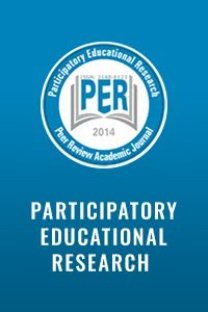Examining Effects of Worksheets to Associate Thermodynamics Concepts with Related Daily Events
The objective of this study is to examine the effect of worksheets as a tool used for teacher candidates to associate thermodynamics concepts with related daily events in an active learning environment. A questionnaire that consists of eight open-ended questions was developed by the researchers. The content of these questions was relationship of zeroth and first laws of thermodynamics and expansion concept with daily events. This measurement tool was applied to fifteen fourth year physics teacher candidates in the Black Sea Region of Turkey during the 2014-2015 academic years before and after the application. Answers of the physics teacher candidates to questionnaire were analyzed via understanding level criterions as sound understanding, partial understanding, misunderstanding and no understanding. Three worksheets contain hands-on activities were applied in four-hour lesson. After completion of questionnaire the interview was implemented about teacher candidates’opinions related to application. The results of questionnaire showed that after application there was an increase for sound and partial understanding. After application of worksheets, teacher candidates were able to use zeroth and first laws of thermodynamics and expansion concept in daily events more easily. It was concluded that worksheets enhanced teacher candidates’ understanding relationship of zeroth and first laws of thermodynamics and expansion concept with daily events. Also they provided active learning environment to teacher candidates
Keywords:
thermodynamics, worksheets daily events, physics teacher candidates,
___
- Abraham, M. R., Williamsom, V. M., & Wetsbrook, S. L. (1994). A cross-age study of the understanding of five chemistry concepts. Journal of Research in Science Teaching, 31(2), 147-165.
- Akınoğlu, O., & Özkardeş Tandoğan, R. (2007). The effects of problem-based active learning in science education on students’ academic achievement, attitude and concept learning. Eurasia Journal of Mathematics, Science & Technology Education, 3(1), 71-81.
- Atasoy, Ş. (2008). Öğretmen adaylarının Newton’un hareket kanunları konusundaki kavram yanılgılarının giderilmesine yönelik geliştirilen çalışma yapraklarının etkililiğinin araştırılması. (Unpublished Ph. D. thesis). Karadeniz Technical University, Trabzon, Turkey.
- Atasoy, Ş., & Akdeniz, A. R. (2006.) Yapılandırmacı öğrenme kuramına uygun geliştirilen çalışma yapraklarının uygulama sürecinin değerlendirilmesi. Milli Eğitim Dergisi, 35 (170), 157-175.
- Avezedo e Silva, J. F. M. (1991). The thermodynamics of a refrigeration system. Physics Education, 26, 115-119.
- Bozdoğan, A. (2007). Fen bilgisi öğretiminde çalışma yaprakları ile öğretimin öğrencilerin fen bilgisi tutumuna ve mantıksal düşünme becerilerine etkisi. (Unpublished master’s thesis). Çukurova University, Adana, Turkey.
- Burhan, Y. (2008). Asit ve baz kavramlarına yönelik karikatür destekli çalışma yapraklarının geliştirilmesi ve uygulanması (Unpublished master’s thesis). Karadeniz Technical University, Trabzon, Turkey.
- Coştu, B., Karataş, F.Ö., & Ayas, A. (2003). Kavram öğretiminde çalışma yapraklarının kullanılması. Pamukkale Üniversitesi Eğitim Fakültesi Dergisi, 2(14), 33-48.
- Cotignola, M. I., Bordogna, C., Punte, G., & Cappannini, O. M. (2002). Difficulties in learning thermodynamic concepts: Are they linked to the historical development of this field? Science &Education, 11, 279-291.
- Demircioğlu, H.; Demircioğlu, G., & Ayas, A. (2004). Kavram yanılgılarının çalışma yapraklarıyla giderilmesine yönelik bir çalışma. Milli Eğitim Dergisi, 163.
- Etherington, M. B. (2011). Investigative primary science: A problem-based learning approach. Australian Journal of Teacher Education, 36(9), 53-74.
- Gönen, S. & Akgün, A. (2005). The investigation of applicability of worksheet was developed about relationship between heat and temperature concepts. Elektronik Sosyal Bilimler Dergisi, 3(11), 92-106.
- Ishida, M., & Chuang, C. (1997). New approach to thermodynamics. Energy Conversion and Management, 38(15-17), 1543-1555.
- Junglas, P. (2006). Simulation programs for teaching thermodynamics, Global Journal of Engineering Education, 10(2) 175-180.
- Karamustafaoğlu, S., Coştu, B. & Ayas, A. (2006). Turkish chemistry teachers’ views about an implementation of the active learning approaches in their lessons. Asia-Pacific Forum on Science Learning and Teaching, 7(1).
- Kurt, Ş., & Akdeniz, A.R., (2002). Fizik öğretiminde enerji konusunda geliştirilen çalışma yapraklarının uygulanması. V. Ulusal Fen Bilimleri Matematik Eğitimi Kongresi, ODTÜ, Ankara.
- Mulop, N., Yusof, K. M., & Tasir, Z. (2012). A review on enhancing the teaching and learning of thermodynamics. Procedia - Social and Behavioral Sciences, 56, 703-712.
- Pintó, R., Couso, D., & Gutierrez, R. (2005). Using research on teachers’ transformations of innovations to inform teacher education: The case of energy degradation. Science Education 89 (1), 38–55.
- Sands, M., & Özçelik, D. A. (1997). Okullarda uygulama çalışmaları. Öğretmen Eğitimi Dizisi, Yök/Dünya Bankası Milli Eğitimi Geliştirme Projesi, Hizmet Öncesi Öğretmen Eğitimi, Ankara: YÖK Yay.
- Tatar, E., & Oktay, M (2011). The effectiveness of problem-based learning on teaching the first law of thermodynamics. Research in Science & Technological Education, 29(3), 315-332.
- Turan, G. (2012). 8. sınıf kuvvet ve hareket ünitesinin öğretiminde çalışma yapraklarının öğrencilerin başarılarına etkisi. (Unpublished master’s thesis). Adıyaman University, Adıyaman, Turkey.
- White, R. T., & Gunstone, R. F. (1992). Probing Understanding. Great Britain: Falmer Press YÖK. (1998). Fakülte-okul işbirliği kılavuzu. Öğretmen Eğitimi Dizisi, YÖK/Dünya Bankası Milli Eğitimi Geliştirme Projesi, Hizmet Öncesi Öğretmen Eğitimi, Ankara: YÖK Yay.
- ISSN: 2148-6123
- Yayın Aralığı: Yılda 6 Sayı
- Başlangıç: 2014
- Yayıncı: Özgen KORKMAZ
Sayıdaki Diğer Makaleler
Özlem ÖZÇAKIR SÜMEN, Hamza ÇALIŞIR
Nida BAYINDIR, Levent SEVİ, Aynur ÇUKURCALIOĞLU
Süleyman AYDIN, Pınar URAL KELEŞ, Mehmet Akif HAŞILOĞLU, Leyla AYDIN
Ertuğrul ÇAM, Fatih SALTAN, Recep ÇAKIR
İjlal OCAK, Selcen Süheyla ERGÜN
Aykut Emre BOZDOĞAN, Kerem BOZDOĞAN
Pınar URAL KELEŞ, Mehmet Akif HAŞILOĞLU, Süleyman AYDIN, Ayşegül ÖNER
